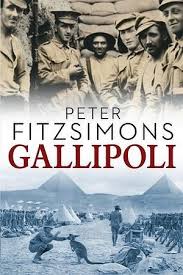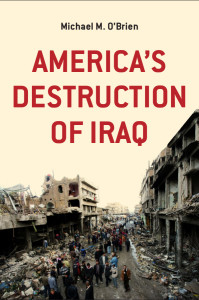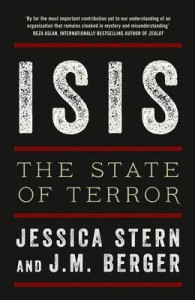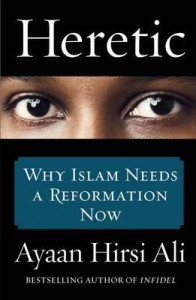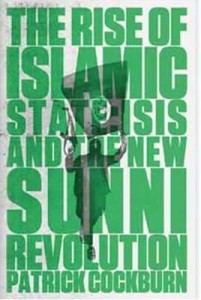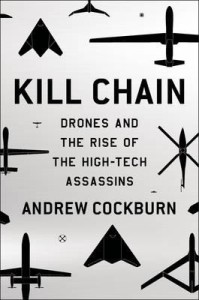With Australia’s terror alert at the highest level possible and following the recent detention of terrorists planning attacks on the Centenary celebrations of Anzac Day, security has been stepped up around Australia. Most notably they were stepped up at Gallipoli in Turkey, where both the Australian Prime Minister Tony Abbot and New Zealand Prime Minister Peter Key attended official ceremonies. Both Prime Ministers, having taken their nation’s military back into Iraq in the fight against Islamic State, were prime targets. Peter Fitzsimons best selling book Gallipoli records how, on 25 April 1915, Allied forces landed on the Gallipoli Peninsula in present-day Turkey to secure the sea route between Britain and France. What was the Ottoman Empire sided with the Nazis during World War One. Anzac Day is seen by many Muslims as a celebration of an imperialist power’s attack on Muslim lands; and a direct parallel with today’s Western attacks on Muslim lands in Iraq and Syria.
Muslims regard Anzac Day as an offensive celebration of an assault on the Muslim territory of the Ottoman Empire. Australians and New Zealanders regard it as essentially a holy day to remember the fallen in a battle during which their countries’ sense of nationhood was forged.
Here is a piece, courtesy of The Sydney Morning Herald, by the ever popular Peter Fitzsimons, former footballer turned journalist and author:
As we approach the shores of the Gallipoli centenary, those drums you can hear getting louder are not just coming from bands practising for the big day, but rather the usual beating of hairy-chests draped in Australian flags, claiming Gawd knows what powers for the original Anzacs.
If you didn’t know better, you’d reckon that the Australians who hit those beaches on that devastating dawn were angels of moral rectitude, bronzed behemoths carved from granite, fired only by the desire to fight for liberty, and not one of them wavered.
I respectfully submit that those who push that line are somewhat missing the point. The wonder was not that these were superhuman men of superior morals, achieving superhuman feats through their superior strength and skill. It was that they were ordinary Australians from all walks of life – butchers, bakers and candlestick makers, most of them, with only a few months serious training under their belts – filled with the flaws and failures of everyman, frequently with fractured pasts, who still managed to achieve extraordinary things.
The great war correspondent, Charles Bean himself, though, he might have blushed a little while writing it – as he was one of the key architects who laid the foundation stones for the superman mythology – was frank on the subject, as quoted by Ross Coulthart in his recent book on the war correspondent.
“The truth,” Bean wrote, “is soldiers are not the fictions which war correspondents have made of them, but ordinary human men.”
The first time, in fact, some of those Anzacs made big news, the headlines were of a singularly damaging nature, when just after they had joined up and were training in camps across Australia, Melbourne Truth ran with the front-page story on October 10, 1914, detailing “the super-sensational rumour that A GIRL OF 16 had been plied with liquor and then outraged by about thirty soldiers”.
When the paper hit the streets, the soldiers so exploded with outrage, hundreds of them converged on Melbourne proper and rioted, and it took no fewer than 200 police – on foot and mounted – to protect the building. The story was more than hotly denied.
Once in camp in Cairo, prior to going to the Dardanelles, the Australians were so notorious for their ill-discipline that the running gag was that night after night, the camp sentries would have roughly the same exchange:
Sentry: “Halt! Who goes there?”
Voice: “Ceylon Planters’ Rifles.”
Sentry: “Pass, friend.”
[A little later:]
Sentry: “Halt! Who goes there?”
Voice: “Auckland Mounted Rifles.”
Sentry: “Pass, friend.”
[A little later again:]
Sentry: “Halt, Who goes there?”
Voice: “What the f–k has it got to do with you?”
Sentry: “Pass, Australian.”
And then, when called up to go to the Dardanelles, in early April 1915, an even more infamous riot occurred, when several thousand of them – less the 301 already given dishonourable discharges, many for having dishonourable discharges – headed to Cairo’s red light district, the Wazza, where so many had caught the pox in the first place, and raised hell.
Just before 5 o’clock in the afternoon of Good Friday, people wending their way through the streets were suddenly stunned to see burning mattresses hurtling down from the upper floors of the whorehouse at Number 8, Darb al-Muballat. This was shortly followed by clothes, bedding, heavy furniture, chairs and shutters. Down below, other Australian and New Zealand soldiers, joined in the fun, soon threw the furniture and all the rest onto the burning mattresses to get a proper bonfire going. To put a stop to it, first came the Egyptian police, then the military picket, then the fire brigade, and then the Military Police, but none of them were strong enough to stop the riot.
The Australian attitude on this night, was in the image of the reply of another rioter, later on, who when asked to “Keep the peace in the name of the King,” fired back: “Oh f–k the bloody King; don’t stop my men, let them pass.”
Finally, at 10 o’clock, a whole battalion of Lancashire Territorials arrived with rifles and bayonets fixed. Their officer gave the order, and in an instant his men formed up, with their rifles pointed straight at the rioters.
This time it worked.
In short, just before the landing, the situation for the British authorities, in regard to the Australian troops was reminiscent of the remark most often, and probably apocryphally, attributed to the Arthur Wellesley, the 1st Duke of Wellington, who, after surveying the British troops sent to him in Spain in 1809: “I don’t know what effect these men will have on the enemy, but by God, they terrify me.”
There was hell to pay when the news of the Wazza riot broke in Australia, but, mercifully, some hugely reputable newspapers, like Melbourne’s Truth, were honest enough to point out where the blame truly lay: with the prostitutes.
“Certain happenings in Egypt,” the paper delicately raised the subject, “have lately tended to give more prominence to [those arrested for riot] but it is only fair to point out that . . . the immorality of Cairo is noted from one end of the world to the other, and ‘soliciting’ is reduced to a fine art among the lewd women of that city, so that resistance to their nefarious methods is a difficult problem, even with men whose morality would be absolutely unimpeachable under fair conditions . . . Brothels are in abundance, and the harlots are in no wise wanting in enterprise, but try to force poor, innocent Australian boys into their houses of ill fame. Shame.” Exactly!
And of course those rioters were no more than a minority of the Australian troops – and most certainly not your grandfather or my great-uncle twice removed – and the reaction of many, was indeed disgust at what had happened. But here is the part I love . . .
One of the most disgusted was a sensitive artist Digger from Western Australia, Ellis Silas. And he was also there on the day of the landing, as those same men, ordinary Australians with ordinary flaws, rose to the occasion, and kept pouring ashore at Gallipoli, even though under heavy fire.
“It was a magnificent spectacle to see those thousands of men rushing through the hail of Death,” Silas would record, “as though it was some big game. These chaps don’t seem to know what fear means – in Cairo I was ashamed of them, now I am proud to be one of them though I feel a pigmy beside them.” Bingo.
But even then, it is not as if every man-jack of them was up to it.
When the commander of the AIF First Division, General William Bridges, came ashore a couple of hours after dawn, one of the first officers he found was a battalion commander who – under the extreme circumstances of the angels of death having been flapping their wings all over him for the past two hours – had fallen to pieces, just as you or I might have under the same circumstances. This particular commander was quite “unstrung”. General Bridges had no sympathy and was “coldly contemptuous”, but there would be many other “stragglers” on the day who gave in to civilian sanity and gravitated to the relative safety of the shoreline, rather than press the Turks in the heights where their machine-guns were exacting such a toll.
In sum, writes Peter Fitzsimons, what we commemorate are not be the achievements of Australia’s super-race of men who universally triumphed against all odds. For starters, they weren’t a super-race, and of course, they didn’t triumph in the final analysis. But they were volunteers, rare in the Great War for the fact that as a body of men they didn’t have to be there. Instead, they chose to be there, and as a body – with the Kiwis, Brits, Indians, French and others – really did do extraordinarily well, against a noble foe in a campaign that really did galvanise the nation from which they sprang.
Fitzsimons agrees with former Australian Prime Minister Paul Keating in wishing that the foundation stone of Australia’s nationhood was something other than the devastatingly bloody battle of Gallipoli: “But the point is, that really was the first thing that brought our mob totally together as one, as never before, and 100 years on, it is right we remember them.
“Lest we forget.”
